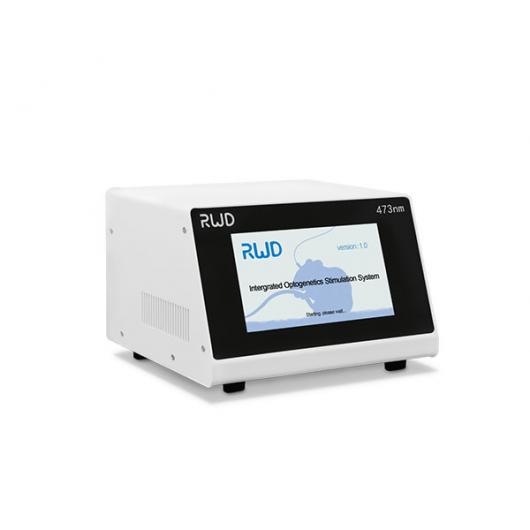
Intelligent optogenetics system
Optogenetics uses light-responsive proteins to control biological processes. Using genetic methods to express light-sensitive channel proteins in specific cell populations, these light-sensitive channel proteins will open under specific wavelengths of light to pump protons out of the cell, or anions (such as Cl-), cations (such as Na + and K +) pumped into the cell to hyperpolarize or depolarize the cell, so that the cell can be inhibited or excited instantly. The unmatched spatiotemporal precision, high tunability, reversibility, and few side effects of light makes optogenetics a powerful strategy to study neuroscience and complex biological systems. For these reasons, optogenetics has already revolutionized disciplines such as neuroscience, developmental biology, and cell signaling, and is poised to do the same with cellular metabolism. The following are common research directions, for example neural circuit basic research, learning and memory research, addiction research, dyskinesia, sleep disorder, Parkinson’s disease model, depression and anxiety animal models and other applications.
Features and benefits
- High stability - Ensure that the regulation effect is consistent during the experiment
- Remote control - Avoid more human factors in animal behavioral experiments
- Fast response - Reduce the time lag between animal behavior and optogenetic regulation
- Multiple trigger modes - Meet diversified experimental requirements, such as electrophysiology, fiber photometry etc.
- Power:0-100mW,1mW resolution
- Stability:<1%
- Remote control:10m
- Input:2V-10V
- Output:10mV-5V
- Trigger mode:Edge/Real-Time/Gate
- Edge mode1:If the trigger voltage is higher than or equal to the set value of trigger voltage, the program will run; the trigger is only featured by the “on” function and the program’s duration depends on its set duration.
- Real-time mode2:If the trigger voltage is higher than or equal to the set value of trigger voltage, the program will run; if it is lower than that value, the program will stop; the trigger is featured by the “on/off” functions. The program’s duration depends on the trigger’s duration.
- Gate mode3:the running power relies on the first subprogram selected and other parameters are defined by the external device, and only square wave at the frequency ≤500Hz are responded to.
- Safety:password;high temperature alarm;program run prompt
- Storage:internal memory/ USB flash disk
- Wavelength:450, 465, 532, 589 and 630 nm (optional)

